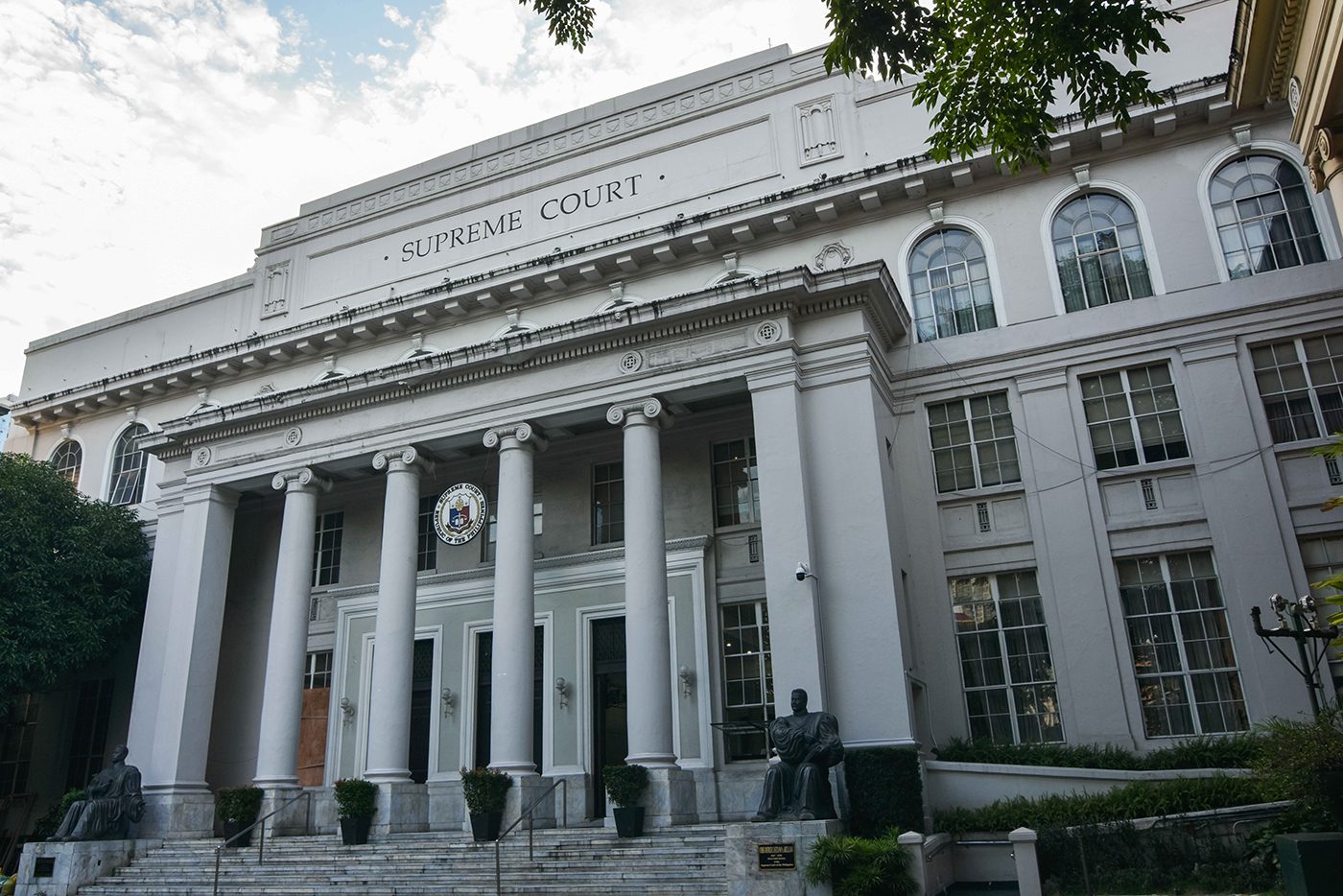SUMMARY
This is AI generated summarization, which may have errors. For context, always refer to the full article.

MANILA, Philippines – The Free Legal Assistance Group (FLAG) filed on Monday, February 24, a petition for a writ of habeas corpus to free former Communist Party of the Philippines (CPP) chairman and New People’s Army (NPA) commander Rodolfo Salas, more popularly known as “Kumander Bilog,” who was arrested on murder charges earlier this month.
FLAG asked the Supreme Court to “render judgment granting the privilege of the writ of habeas corpus in favor of Mr Rodolfo Salas ordering that Mr. Salas be immediately set free.”
Salas was arrested February 18 on the power of a warrant of arrest issued by the Manila Regional Trial Court (RTC) in August 2019 over a 12-year-old murder case alleging a mass grave in Leyte of victims of the so-called purge of communists.
Habeas corpus literally means produce the body, and the effect of the privileges would be to release a person in detention.
But the existence of a warrant is generally seen as a legal basis for detention, especially that Section 4 of the Rule on the Writ of Habeas Corpus says “the writ shall not be allowed” if the person detained “by virtue of a judgment or order of a court of record.”
FLAG’s arguments
FLAG cited the Supreme Court case Umil vs Ramos in saying that habeas corpus does not only ask whether there was a court order for the detention, but that the court “must inquire into every phase and aspect of petitioner’s detention.”
It means that FLAG wants the Supreme Court to look at whether the murder charge itself is legal.
“The subject of this petition, Mr Rodolfo Salas, is being illegally detained in violation of: (1) his right to due process as a protection against hasty, malicious, and oppressive prosecutions, and (2) his right against being put twice in jeopardy of punishment for the same offense,” said the petition by FLAG, led by its chairperson Chel Diokno and former Supreme Court spokesperson Ted Te.
FLAG said that Salas’ right to due process was violated because he was not given an opportunity to answer the charges.
“At no point in the proceeding did Rodolfo receive any subpoena from the public prosecutor requiring him to answer. The first time he found out about it was in the news wherein he heard that there was a case filed against him in Leyte,” said the petition.
Salas’ compromise agreement
In 1991, Salas was convicted of rebellion and sentenced to 6 years in prison.
Because he has been detained since 1986 and with his pre-conviction detention credited, Salas was freed on September 25, 1992, having served his full sentence.
At the same time, Salas and the government struck a compromise agreement in 1991, and among the terms was that Salas is protected from “being charged and prosecuted for any common crime allegedly committed in furtherance of rebellion or subversion.”
“Necessarily, this includes murder,” said the petition, referring to the “any common crime” in the agreement.
FLAG cited the Hernandez-Enrile doctrine where the Supreme Court said that “everything done” including “destruction of life and property” amounts to only one crime – rebellion.
FLAG said that the compromise agreement promised Salas that after conviction of rebellion, he will be protected by the Hernandez-Enrile doctrine in that he will no longer be prosecuted for any crime cmmitted in furtherance of his rebellion.
By prosecuting him again for the alleged Leyte murders, FLAG said the court would be committing double jeopardy.
“By placing Rodolfo in second jeopardy for murder when the State has actively negotiated for and entered into a plea-bargaining agreement that was used as the basis to secure Rodolfo’s conviction for Rebellion in 1991 – a crime which absorbs and includes murder – the State has not only violated Rodolfo’s right against double jeopardy but also to due process of law,” said the petition.
Salas, according to FLAG, “worked on re-building his life with his family in Angeles City.”
“He has since provided for his family as the only breadwinner and cared for Jhoanna who is sick with lupus and for their two (2) minor children ages 11 and 9.”
How the Supreme Court will treat the FLAG petition is another test for the extraordinary writs like habeas corpus, as they have so far failed to help activists crying harassment in the Duterte administration. – Rappler.com
Add a comment
How does this make you feel?
There are no comments yet. Add your comment to start the conversation.